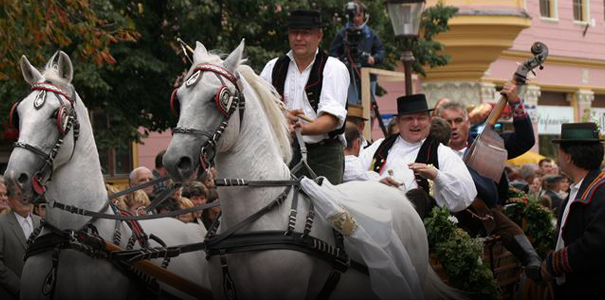Bećarac is an integral part of the life and customs of Slavonia, where it has been making people laugh for centuries. Bećarac is a traditional folk song born in Slavonia at the time of the end of the Military Frontier and the departure of the Turks. Etymological roots come from the Turkish language, in which the word "bekar" symbolizes a young man, a bachelor who loves women and alcohol.

These humorous and satirical songs are mostly performed by two or more men. The centre of bećarac is a couple of decasyllable. The first verse or part of the verse is sung by the lead singer creating a certain thesis, and then the other join him in singing. The second verse is mostly the humorous antithesis of the first verse. Verses are of predominantly romantic and metaphorically erotic content. The singer praises his own virtues while mocking the rivals and those who do not share his opinion. Bećarac is performed regularly with instrumental accompaniment of folk instruments, mostly tamburica orchestras or orchestras with violin, accordion and tambura.
While for centuries tradition has meant that bećaracs are sung by men, today they are women who are the bearers of this cultural heritage. As well as being widespread throughout Slavonia, this folk song from Croatia has spread to southern Hungary and all over Vojvodina. The best evidence for its importance in this region shows the fact that UNECO placed the bećarac in 2011 into its list the immaterial cultural heritage of mankind.


